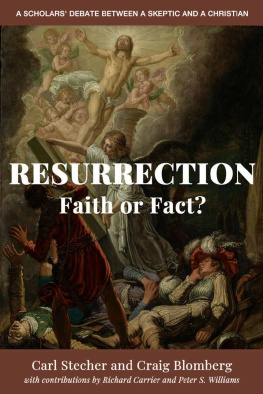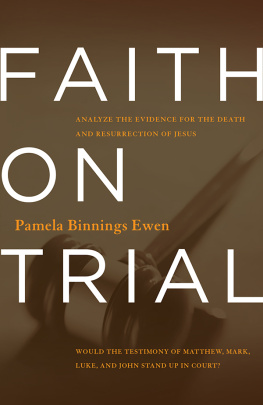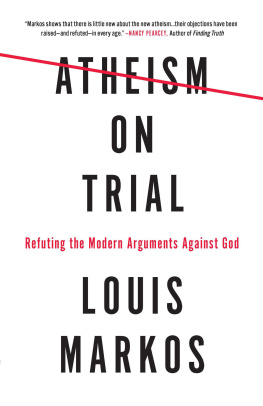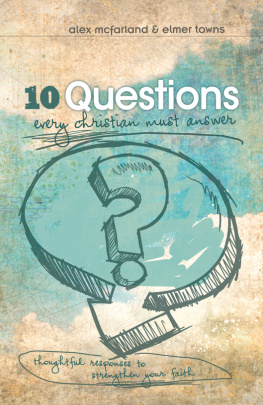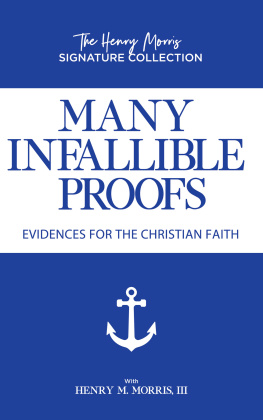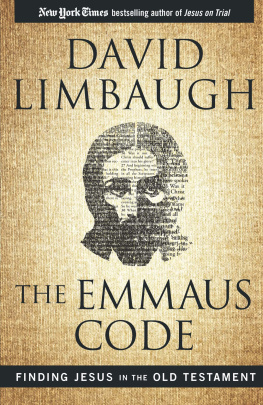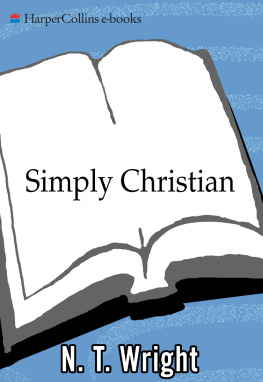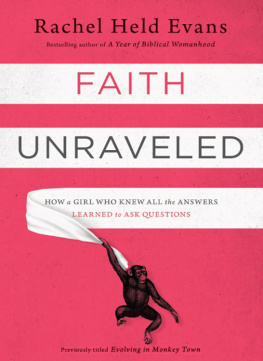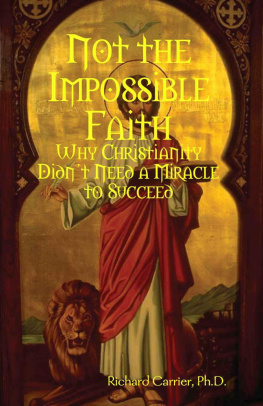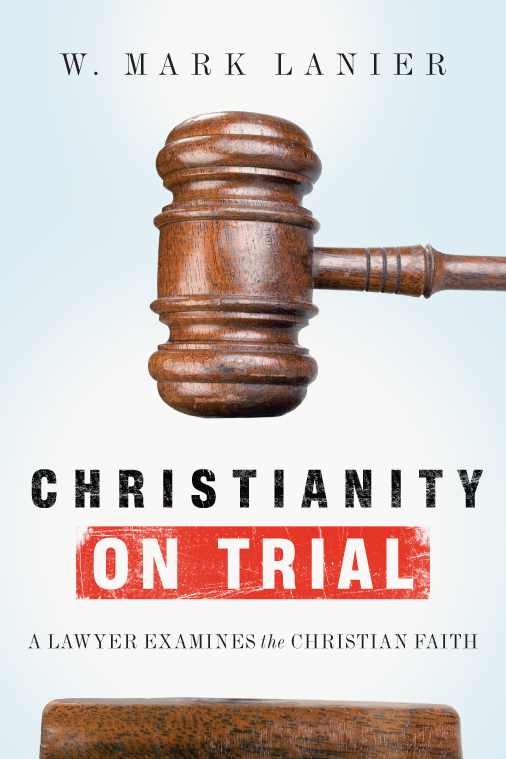I dedicate this work to my marvelous wife, Becky, and our five special children, Will, Gracie, Rachel, Rebecca and Sarah. They are Gods gracious gifts in my life that continually show me the joys of family and love.
I also acknowledge and thank my godly mother and my father, who awaits us in Gods kingdom, for an upbringing that taught of God and always encouraged questioning and thinking about truth and reality.
My thanks go to the many supporters and friends, including the pastoral staff at our church (David Fleming and Stephen Trammel), where I first taught much of this material. Many people commented on those lessons as I wrote and delivered them each week in our Life Groups. For those voices, thank you for making this book better.
I also thank the marvelous people at InterVarsity Press for publishing this work, especially Al Hsu and Drew Blankman. They, along with Charles Mickey of the Lanier Theological Library, improved this product significantly.
More information on my class, including video presentations of the material in this book and the resources I use in this and other writings, can be found at the class website, www.biblical-literacy .org , and at our library website, www.LanierTheologicalLibrary.org .
Preface
Last week started out supremely busy. Sunday morning, I taught my class at church and went to a big family lunch. Immediately afterward, I left Houston for a 6 p.m. meeting in Chicago. A troop of lawyers convened to assist in my preparations for a deposition I was taking the next day. (A deposition is an examination of a witness under oath that has all the trappings of a trial except it doesnt occur in a courtroom and the judge is not present. Video cameras capture the event, and a court reporter takes down each word. That testimony can later be played by video or read into evidence at a trial.)
We holed up in a hotel conference room and went past midnight. Juan Wilson, my trusted friend and coworker, brought in dinner so we could work without losing any time. I was about to take the deposition of a design engineer who had led a team developing a metal hip implant. We believed the implant was poorly designed, and obvious safety warnings were ignored in an effort to secure a worldwide market that put over a billion dollars into the companys hands. The implants were taken off the market because of their dangers, but not before being placed in hundreds of thousands of unknowing victims. This deposition would cover issues of metal corrosion, testing protocols, the effects of metal debris in the body, ions and nanoparticles, and more.
I was up early Monday morning to do final preparation, and I began the deposition at 9:03. We worked through lunch, and the deposition ended midafternoon. We were taking the deposition at a hotel by the airport, which enabled me to quickly get out of Chicago and on to the next destination. I had to be at a reception in Scottsdale, Arizona, that night.
The reception in Scottsdale went well, but I had to leave it by 8:30 p.m. to return to the airport and get to Santa Ana, California. In Santa Ana I had a meeting late into the night in preparation for a federal court hearing scheduled to begin promptly at 8 a.m. It was what lawyers call a Daubert hearing. This name comes from a famous case (Daubert was the name of the plaintiff), and it determines whether an experts testimony is going to be allowed at a trial.
In American courts the judge is deemed the gatekeeper to the jury, and a jury is not allowed to hear expert testimony unless the judge deems it reliable. The purpose is to keep junk science out of a courtroom. This was a high-profile trial concerning whether a major brand of car would at times accelerate even when the brakes were engaged. The judge would be scrutinizing each expert and each opinion very carefully, as the media watched from the gallery.
After a brief nights sleep, I was up and standing in line to make it through courthouse metal detectors by 7:15. The judge kept us until 1 p.m., with two ten-minute breaks allowed. Our team then met in the courthouse caf over coffees and Diet Cokes for another hour of planning.
From there I hustled back to the airport to get back to Scottsdale, Arizona, where I was scheduled to give a dinner speech to a seminar full of lawyers. I arrived with just enough time to clean up and change clothes. I went into the dinner wiped out. It had already been a long week, and I was running on just a few hours of sleep.
At the appropriate time I gave my dinner speech. Afterward, I finished dinner and hoped to retire to my room. (I had two hours of presentations I had to make the next morning, followed immediately by an expert coming to meet with me on matters of pharmaceutical sales practices. I was hoping to get some sleep before waking up early enough to get the PowerPoint done for the speeches. I also had the experts ninety-one-page report to read before the next day began.) I politely excused myself and got up from my table to head back to my room. As I was walking out, a lawyer I had met at the reception the night before got up from his table and came to me. He asked me how my Daubert hearing had gone. I told him I thought it went well, and he then informed me that he had been on my website after meeting me. I smiled, wanting to be polite and wanting to go to sleep. He then said he had been on my Bible website, not just my law firm website. I found that a bit surprising. Looking me dead in the eye, he proclaimed, I am an agnostic. Give me the Daubert hearing on God!
He was using lawyer jargon to ask me for evidence on why believing in God has any legitimacy. I smiled while his request sank in. Before I could say anything, I realized five other lawyers and one spouse were standing nearby and forming a chorus saying, Yes, we would like to hear this too!
It was like someone flipped a switch in me. There is something invigorating about declaring the wonders of God. That is not to say that sleep is unimportant. Nor that drowsiness cannot trump even the greatest opportunity to discuss God, but it is invigorating nonetheless.


